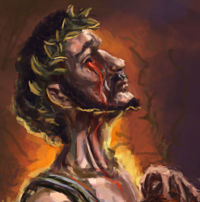Neuroscience

The blind leading: Power reduces awareness of constraints. (2012)
"Organizations need to anticipate the tendency of their most powerful members to leap without looking. The remedy is to surround them with people who can see other angles, or can...
Written by: Whitson, Liljenquist et al.
Read more
The neurobiological substrates of authority: costs and benefits. (Nov 2011)
"One cost of exerting authority is that its operation may be degraded under conditions of stress ... this may be manifest in part as the 'hubris syndrome', Professor Trevor...
Written by: Robbins, Trevor W.
Read more
The relevance of Nash equilibrium to psychiatric disorders. (2011)
"the Nash equilibrium is a prominent tool for analysing any interdependence between interacting parties. The Nash equilibrium could aptly be introduced for describing a patient’s mental health status. Tassos Patokos, National...
Written by: Patokos, Tassos.
Read more
Domain expertise insulates against judgement bias by monetary favors through a modulation of ventromedial prefrontal cortex. (2011)
"We used the same art-viewing paradigm to test a prevailing idea in the domain of conflict-of-interest: that expertise in a domain insulates against judgment bias even in the presence of...
Written by: Kirk, Harvey and Montague.
Read more
Differences between psychopathy and other personality disorders: evidence from neuroimaging. (2011)
"ICD-1O and DSM-IV-TR diagnostic guidelines do not list psychopathy as a distinct psychiatric entity. However, there are significant overlaps between psychopathy and DSM-IV-TR Cluster B personality disorders. Sagari Sarkar...
Written by: Sargar, Clark and Deeley.
Read more
Oxytocin promotes human ethnocentrism. (2011)
Oxytocin creates intergroup bias because oxytocin motivates in-group favoritism and, to a lesser extent, out-group derogation. These findings .. suggest that oxytocin has a role in the emergence of intergroup conflict...
Written by: De Dreu, Greer et al. "
Read more
Narcissistic personality disorder: a clinical perspective. (2011)
"This article highlights some of the seemingly incompatible clinical presentations of narcissistic traits and NPD, especially as they co-occur with depressivity and perfectionism, and it discusses implications for building a...
Written by: Ronningstam, Elsa.
Read more
Psychiatry and politicians: the ‘hubris syndrome’. (2011)
"Lord Owen has provided psychiatrists and other physicians with useful guidance on how to recognise the appearance of hubris syndrome in persons who hold positions of power. He has also provided...
Written by: Russell, Gerald.
Read more
Effects of expectation on placebo-induced dopamine release in Parkinson disease. (Aug 2010)
"The anticipation of therapeutic benefit in response to placebo administration has been likened to the expectation of reward, particularly in patients with a chronic debilitating illness who have already experienced...
Written by: Lidstone, Schulzer, Dinelle et al.
Read moreHubris: a primal danger. (2010)
"Concern about hubris is deeply embedded in our genes. Humans might have evolved ways to ... prohibit behaviors which threaten them. Strivings for rank and power can be threats, which is why dire...
Written by: Trumbull, D.
Read more





